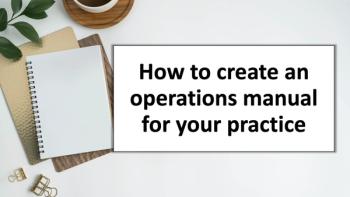
Physicians Practice Pearls: Prepare for the Worst
Another selection from our weekly e-mail newsletter. This issue: Preparing for natural (and unnatural) disasters.
A fire recently broke out in a medical office building in the Houston area. A state inspection apparently had been scheduled for the following day, causing one office employee great consternation, as some of the paperwork necessary for the inspection was incomplete. The employee allegedly staged a “minor incident” in the office to take care of the problem. Unfortunately, the building was old and the “minor incident” spread quickly. The employee was subsequently arrested and charged with arson.
Fire and other disasters can strike any office at any time, through accident, malicious acts, or Mother Nature. Remember how Mrs. O’Leary’s cow literally kicked off the 1871 Great Chicago Fire? And this past spring, when tornadoes decimated many hospitals and physician offices in Georgia and Kansas? No one is immune to catastrophe. My own office was destroyed by Hurricane Katrina in 2005.
So what do you do to prepare?
Maintain and update important contact information. Gather and regularly update an employee list with current addresses, phone numbers, and e-mail addresses. Also maintain a master vendor list that includes purchased or leased equipment from each vendor, including model numbers. Keep the information both on and offsite.
Scout for an alternate location where you could practice for a few days should a calamity strike - perhaps a conference room in a friend’s office. Use this outpost for a few days to get your feet back under you. Then start the search for a “permanent” temporary location to resume a more normal business.
Consider VoIP (Voice over Internet Protocol) as your main phone number or for at least one phone number. This will allow you to maintain a contact number that can be set up in any location. Or, consider setting up an arrangement with another office for a backline number that could be used to communicate with your employees and patients, if the need arises.
Publicize your alternate number and location for patients, so they can contact you for treatments, schedules, records, and so on. Print the information on a small business card and hand it out to your patients, along with a practice brochure.
Alert the local media on how patients can contact you in the event of a disaster.
Back up your computer information. Consider duplicating your data on a secondary offsite server so you can restore your clinical and financial data as quickly as possible.
Invest in business interruption insurance. Your bills won’t stop just because you’re out of commission for a short period of time. Make sure the policy is sufficient to cover payroll, rent, and other essential bills. Be sure it covers all sorts of multi-peril incidents, and be aware of any waiting period for implementation; most are three days.
Hopefully you will never have to deal with a fire, tornado, or hurricane. But it’s best to consider all issues and prepare for the worst, so you can do right by your patients no matter what.
Owen Dahl, FACHE, CHBC, is a medical practice management consultant with more than 24 years of experience in consulting for and managing medical practices. Also the author of “Business! Medical Practice Quality, Efficiency, Profits,” He can be reached at odahl@houston.rr.com or 281 367 3364 or via
This article originally appeared in the November 2007 issue of Physicians Practice.
Newsletter
Optimize your practice with the Physicians Practice newsletter, offering management pearls, leadership tips, and business strategies tailored for practice administrators and physicians of any specialty.








